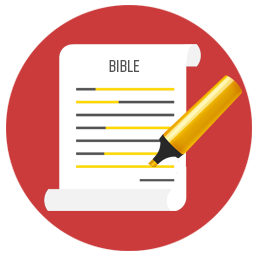This Bible study is based on Bible Readings for the Home, a topical study presented in a question-and-answer format. The scripture references come from both the KJV and NIV translations. Additionally, we’ve provided links to each verse from the World English Bible for a more modern interpretation. We encourage you to follow along in your own Bible, reflect on the guided questions, and highlight the verses that speak to you. Feel free to share this study with your friends and family. Enjoy the journey!
22 Samuel said, “Has Yahweh as great delight in burnt offerings and sacrifices, as in obeying Yahweh’s voice? Behold, to obey is better than sacrifice, and to listen than the fat of rams.
World English Bible
23 Elkanah her husband said to her, “Do what seems good to you. Wait until you have weaned him; only may Yahweh establish his word.”
So the woman waited and nursed her son, until she weaned him.
World English Bible
24 Saul said to Samuel, “I have sinned; for I have transgressed the commandment of Yahweh, and your words, because I feared the people, and obeyed their voice.
World English Bible
2 You shall not add to the word which I command you, neither shall you take away from it, that you may keep the commandments of Yahweh your God which I command you.
World English Bible
1 Behold, a man of God came out of Judah by Yahweh’s word to Beth El; and Jeroboam was standing by the altar to burn incense.
World English Bible
7 The king said to the man of God, “Come home with me, and refresh yourself, and I will give you a reward.”
World English Bible
8 The man of God said to the king, “Even if you gave me half of your house, I would not go in with you, neither would I eat bread nor drink water in this place;
9 for so was it commanded me by Yahweh’s word, saying, ‘You shall eat no bread, drink no water, and don’t return by the way that you came.’”
World English Bible
11 Now an old prophet lived in Bethel, and one of his sons came and told him all the works that the man of God had done that day in Bethel. They also told their father the words which he had spoken to the king.
World English Bible
15 Then he said to him, “Come home with me, and eat bread.”
World English Bible
18 He said to him, “I also am a prophet as you are; and an angel spoke to me by Yahweh’s word, saying, ‘Bring him back with you into your house, that he may eat bread and drink water.’” He lied to him.
World English Bible
19 So he went back with him, ate bread in his house, and drank water.
World English Bible
21 and he cried out to the man of God who came from Judah, saying, “Yahweh says, ‘Because you have been disobedient to Yahweh’s mouth, and have not kept the commandment which Yahweh your God commanded you,
22 but came back, and have eaten bread and drank water in the place of which he said to you, “Eat no bread, and drink no water”; your body will not come to the tomb of your fathers.’”
World English Bible
12 He shall take a censer full of coals of fire from off the altar before Yahweh, and two handfuls of sweet incense beaten small, and bring it within the veil:
World English Bible
1 Nadab and Abihu, the sons of Aaron, each took his censer, and put fire in it, and laid incense on it, and offered strange fire before Yahweh, which he had not commanded them.
World English Bible
2 Fire came out from before Yahweh, and devoured them, and they died before Yahweh.
World English Bible
11 Now all these things happened to them by way of example, and they were written for our admonition, on whom the ends of the ages have come.
World English Bible
22 But be doers of the word, and not only hearers, deluding your own selves.
World English Bible
21
Not everyone who says to me, ‘Lord, Lord,’ will enter into the Kingdom of Heaven; but he who does the will of my Father who is in heaven.
World English Bible
24
“Everyone therefore who hears these words of mine, and does them, I will liken him to a wise man, who built his house on a rock.
25
The rain came down, the floods came, and the winds blew, and beat on that house; and it didn’t fall, for it was founded on the rock.
World English Bible
26
Everyone who hears these words of mine, and doesn’t do them will be like a foolish man, who built his house on the sand.
27
The rain came down, the floods came, and the winds blew, and beat on that house; and it fell—and great was its fall.”
World English Bible
